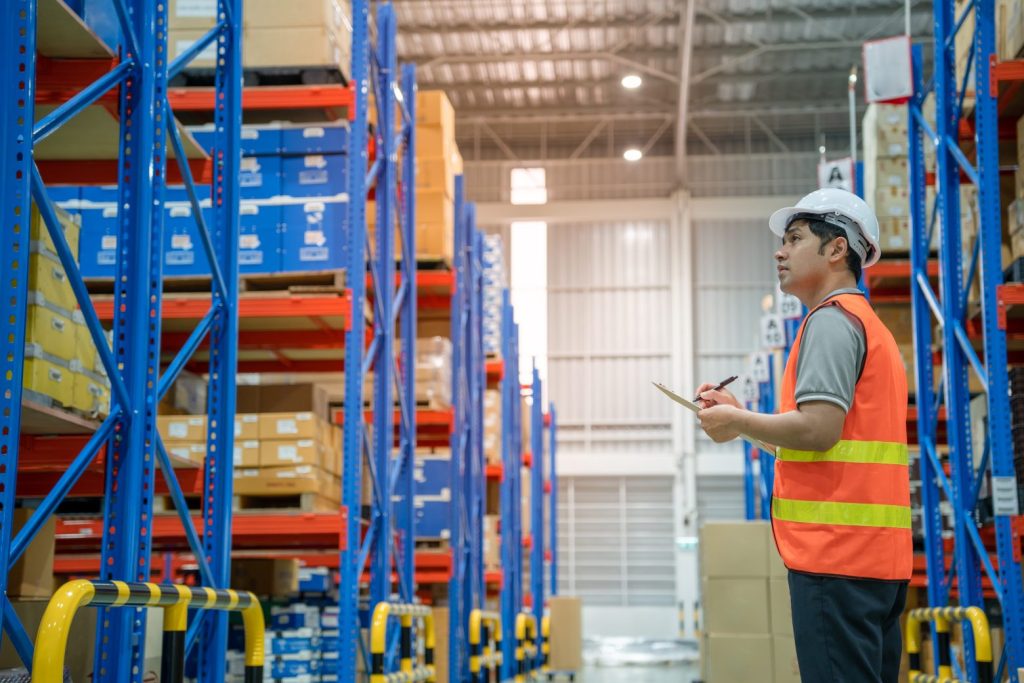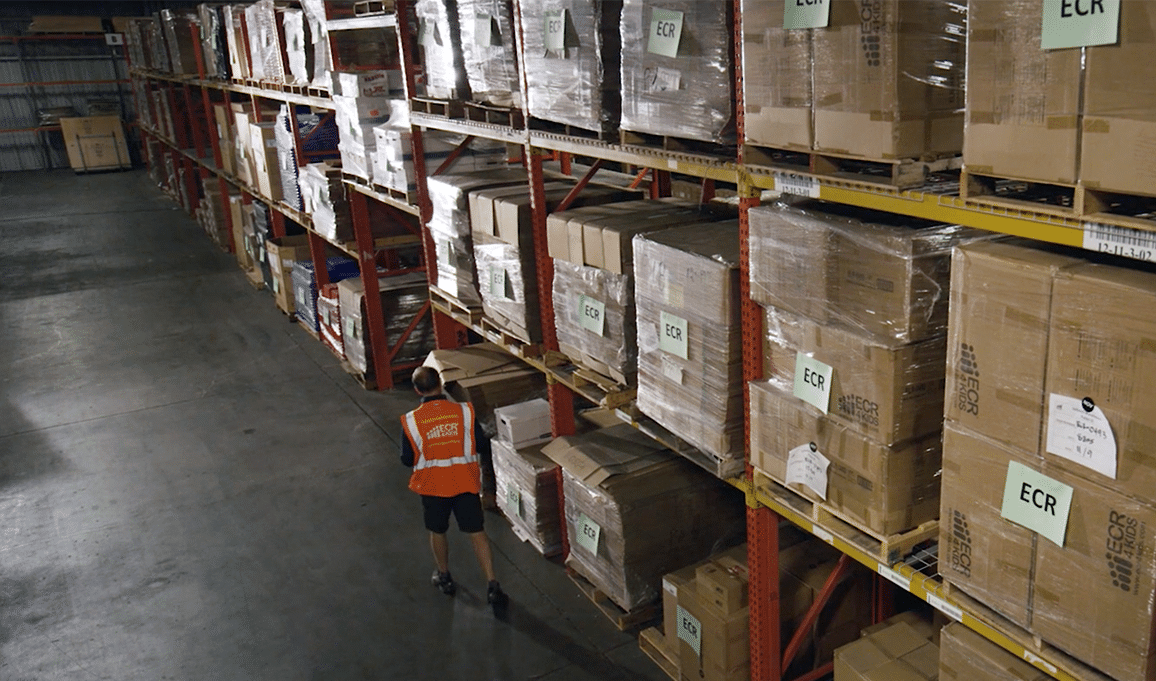Introduction
In today’s rapidly evolving business landscape, having the right warehouse space can make all the difference. Companies are no longer just looking for storage; they need strategically located, well-equipped, and customizable warehouse solutions. This is where Industrial leasing comes into play, offering businesses the flexibility and functionality they need without the hefty commitment of buying property.
Whether you’re a small startup or a large corporation, finding premium warehouse space tailored to your operational requirements can significantly boost efficiency, reduce costs, and enhance your supply chain operations. In this comprehensive guide, we’ll explore everything you need to know about industrial leasing, how to find the perfect warehouse, and why WareMatch is your go-to platform for premium industrial spaces.
What is Industrial Leasing?
Definition of Industrial Leasing
Industrial leasing refers to the rental of industrial spaces such as warehouses, factories, manufacturing facilities, and distribution centers. Unlike commercial leasing for offices or retail spaces, industrial leasing focuses on properties that support production, storage, and logistics operations.

Types of Industrial Leases
There are several types of industrial leases designed to suit different business needs:
1. Full-Service Lease
A full-service lease covers rent, maintenance, insurance, and property taxes. Businesses can focus on operations without worrying about facility management.
2. Triple Net Lease (NNN)
In a triple net lease, tenants pay a base rent plus additional costs like maintenance, taxes, and insurance. This type offers more control over property expenses but requires careful budgeting.
3. Gross Lease
Gross leases include rent and basic operational costs in a single payment. This straightforward lease type simplifies accounting but may be slightly more expensive.
4. Short-Term and Long-Term Leases
Depending on your business flexibility, leases can be short-term (less than a year) or long-term (over five years). Short-term leases are ideal for seasonal operations, while long-term leases provide stability.
Why Industrial Leasing is Essential for Modern Businesses
Cost Efficiency
Leasing industrial property eliminates the need for a massive upfront investment in purchasing real estate. Businesses can allocate capital toward operations, inventory, or technology while enjoying access to state-of-the-art facilities.
Flexibility and Scalability
Industrial leasing allows businesses to scale their operations based on demand. As companies grow or pivot, leasing provides the flexibility to relocate, expand, or downsize without the constraints of property ownership.
Strategic Location Benefits
Warehouses play a critical role in logistics. Industrial leasing enables businesses to secure spaces in strategic locations near major transportation hubs, suppliers, or key markets, improving distribution efficiency and reducing shipping costs.
Customization and Technology Integration
Modern warehouses come equipped with advanced technology, including automated storage, robotics, and climate control. Industrial leasing often allows tenants to customize spaces to meet specific operational requirements.
How to Find the Perfect Industrial Lease
Assess Your Business Needs
Before beginning your search, evaluate your warehouse requirements:
- Size and Layout: Determine the square footage and layout needed for storage, equipment, and employee workspace.
- Ceiling Height: Higher ceilings may be necessary for stacked storage or specialized machinery.
- Loading Docks and Accessibility: Consider dock doors, forklift accessibility, and proximity to transportation networks.
- Security Features: Assess security systems, fencing, and surveillance for asset protection.
Location Considerations
The location of your warehouse can affect your operational efficiency, labor availability, and delivery timelines. Prioritize spaces near:
- Major highways or ports
- Industrial clusters or logistics hubs
- Labor pools with relevant skills
Budget Planning
Factor in:
- Base rent
- Utilities and operational costs
- Maintenance fees
- Potential property improvements
Engage with Trusted Platforms
Platforms like WareMatch streamline the process of finding premium industrial spaces tailored to your business. They provide verified listings, detailed property insights, and support in negotiating favorable lease terms.
Benefits of Using WareMatch for Industrial Leasing
Extensive Database of Premium Warehouses
WareMatch offers an extensive selection of industrial spaces across key locations, ensuring businesses find properties that perfectly match their needs.
Verified Listings
Every property is vetted for quality, compliance, and suitability, eliminating the risk of hidden issues or misrepresented features.
Tailored Recommendations
WareMatch uses advanced algorithms and personalized consultations to suggest warehouses that align with your operational goals and growth plans.
Streamlined Lease Process
From property selection to finalizing lease agreements, WareMatch simplifies each step, saving businesses time and reducing administrative burdens.
Key Features to Look for in a Premium Warehouse
Structural Integrity and Design
- Modern construction materials
- Load-bearing capacity for heavy machinery
- Proper insulation and ventilation
Technology and Automation
- Automated storage and retrieval systems
- Smart security systems
- Inventory management integration
Sustainability and Energy Efficiency
- Energy-efficient lighting and HVAC systems
- Solar panels and green building certifications
- Waste reduction and recycling facilities
Accessibility and Logistics
- Proximity to highways, ports, and airports
- Adequate parking and loading zones
- Easy entry for trucks and shipping vehicles
Steps to Secure an Industrial Lease
1. Define Your Requirements
List your operational needs, including space, layout, location, and budget.
2. Research and Shortlist Properties
Use platforms like WareMatch to explore listings that meet your criteria.
3. Conduct Site Visits
Physically inspect properties for structural integrity, accessibility, and safety features.
4. Negotiate Lease Terms
Work with property owners or brokers to agree on rent, lease duration, and included services.
5. Review Legal Agreements
Ensure all legal and regulatory requirements are met before signing. Consider involving a legal professional specializing in industrial leases.
6. Plan Your Move and Setup
Coordinate logistics, install necessary equipment, and integrate your technology systems.
Common Challenges in Industrial Leasing and How to Overcome Them
High Rental Costs
Solution: Negotiate flexible lease terms, consider shared warehouse spaces, or explore emerging industrial zones with lower costs.
Limited Availability in Prime Locations
Solution: Start the search early, leverage platforms like WareMatch, and consider slightly off-peak locations with good transport connectivity.
Compliance and Zoning Issues
Solution: Verify zoning regulations and safety standards for the intended industrial activities. Professional legal consultation is highly recommended.
Maintenance and Operational Costs
Solution: Opt for full-service or gross leases when possible to manage predictable expenses and reduce unforeseen maintenance burdens.
Industrial Leasing Trends to Watch in 2025
Rise of E-Commerce Fulfillment Centers
The growth of online shopping has increased demand for warehouses near urban centers to enable faster delivery.
Smart Warehouses
AI-driven inventory management, robotics, and IoT devices are becoming standard, increasing operational efficiency.
Sustainable Warehousing
Green buildings, solar-powered facilities, and eco-friendly practices are gaining traction as businesses prioritize sustainability.
Flexible Leasing Models
Short-term and co-warehousing solutions are gaining popularity for startups and businesses with fluctuating inventory demands.
Why WareMatch is the Best Choice for Industrial Leasing
WareMatch stands out for its:
- Comprehensive, verified listings of premium warehouses
- Tailored recommendations based on business requirements
- Simplified lease process, saving time and effort
- Expert support for negotiating favorable terms
- Insights into market trends to make informed leasing decisions
FAQs
1. What is the typical duration of an industrial lease?
Industrial leases vary widely, ranging from short-term contracts of under a year to long-term agreements exceeding five years. Your lease duration should align with your operational and growth plans.
2. Can I customize a leased warehouse?
Yes. Many industrial leases allow for customization of interior layouts, technology integration, and operational equipment installation, subject to landlord approval.
3. How does WareMatch help in industrial leasing?
WareMatch provides verified listings, personalized recommendations, and expert support to help businesses find premium warehouses quickly and efficiently.
Conclusion
Industrial leasing is more than just renting a warehouse; it’s a strategic business decision that impacts efficiency, scalability, and profitability. By carefully assessing your needs, evaluating prime locations, and leveraging platforms like WareMatch, businesses can secure premium warehouse spaces tailored to their operations.
Whether you’re expanding your supply chain, launching a new distribution hub, or modernizing your storage facilities, industrial leasing offers unmatched flexibility and value. Start your search today with WareMatch and find the perfect industrial space that supports your business growth and operational excellence. Click here to return to the homepage and unlock more content.
